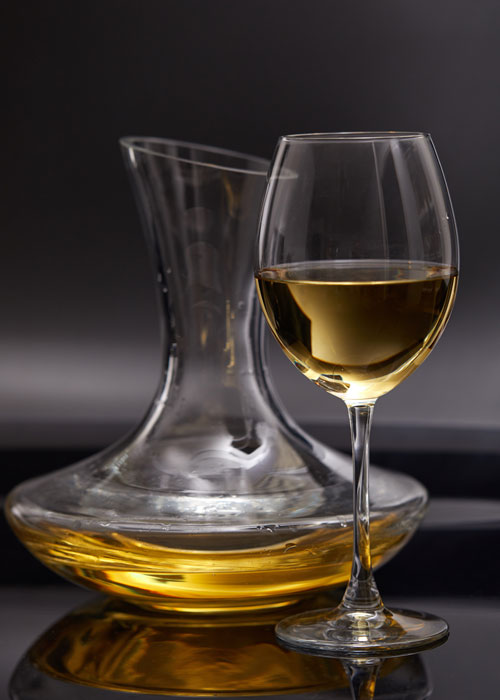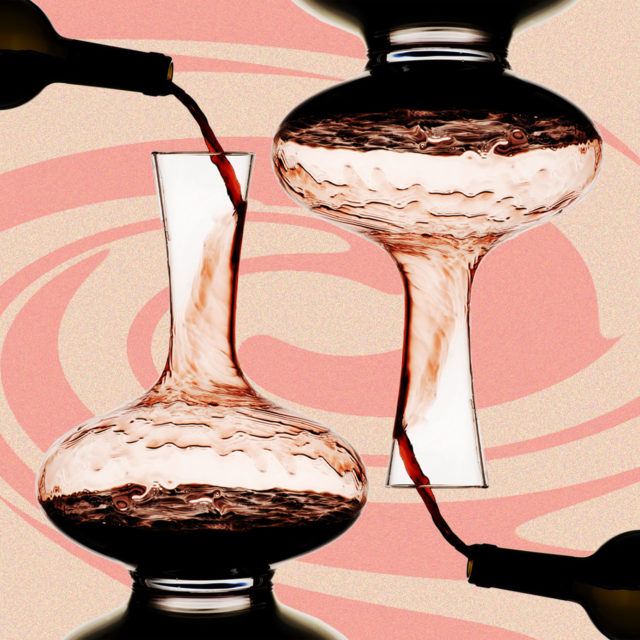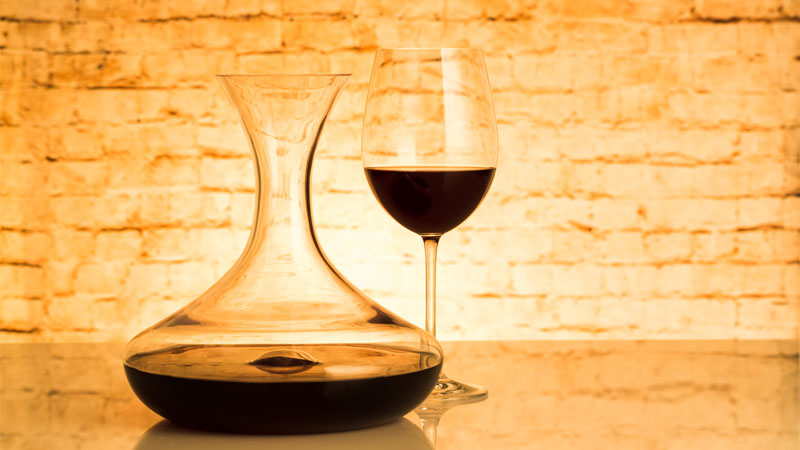The process of decanting, defined as pouring liquid into another vessel, is easy to understand in theory. In practice, it raises some questions. When are we supposed to decant wine? What wines are we supposed to decant? Does decanting wine really make a difference in taste?
When and why we decant wine depends on several factors. In general, experts agree that we decant for two reasons: to oxygenate, or “open up” a wine; or to separate a wine, particularly wine aged 20 years or older, from any accumulated sediment in the bottle.
Whether you’re a lifelong wine drinker or newbie, decanting is easy to learn and can enhance the experience of the wine you drink. So what are the biggest mistakes you could make while decanting? Here, seven wine experts from sommeliers to vintners weigh in.
1. Decanting All Red Wines Simply Because They Are Red
One of the biggest mistakes you can make is decanting reds because they are red. While many experts agree that a lot of red wines can benefit from decanting, it’s not a matter of red versus white.
“Decanting is done to prepare the wine’s state to the liking of the [drinker],” says Michael Kennedy, founder and vintner of Component Wine Company and Vin Fraîche. In other words, the point is “to make the wine more enjoyable,” Kennedy says.
A good rule of thumb for decanting red wines is if the red is young (less than 10 years old) or on the opposite side of the spectrum with a lot of age (over 30 years). “[Young wines] become wildly expressive with air, and move out of their fruit-forward frontward nose, [while] red wines with a lot of age typically need to be decanted solely to remove the wine from sediment buildup” Kennedy says.
A note on sediment: “Decanting is used when the aroma of a wine seems ‘closed’ or when a wine has thrown sediment in the bottom of the bottle,” says Dave Guffy, director of winemaking for The Hess Collection in Napa, Calif. “Sediment can result from unfiltered wines or through tartrate formation when a wine is stored in colder temperatures or in long-term storage.”
2. Thinking White Wines Shouldn’t Be Decanted
White wines can, and should, be considered when decanting. “White wines can benefit from decanting, too. Age-worthy white Burgundy as well as many of the western Sonoma Coast Chardonnays I’ve enjoyed benefit from a 30 minute decant when they are in their youth,” says Ashley Hepworth, winemaker at Joseph Phelps Vineyards. “I think at the end of the day, decanting is a personal preference, so if you think you want to decant it, then do so.”

3. Never Decanting Champagne or Sparkling Wine
“The big mistake in not decanting wine, and it’s entirely too common, is not decanting great sparkling wine,” says Ryan Stotz of JP Bourgeois, a French and Spanish wine importer based in Asheville, N.C. While the bubbles could (and probably will) diminish, sparkling wines can benefit from “opening up” and may be more expressive that way.
In particular, certain sparkling wines and white wines are almost made to be decanted. “An increasingly popular style known as reductive winemaking is creating more of a need than ever to decant white and sparkling wines,” says Kennedy of Component Wine. “Basically, these wines were made without much oxygen in the winemaking process and when opened they often have flinty, sulphur, and egg smells. With some time in a decanter it ‘blows off’ and makes for stunningly precise wines.”
4. Shaking or Tipping the Bottle Before Decanting
While the purpose of decanting is to aerate the liquid, that doesn’t mean shaking or tipping the bottle upside down before pouring is a good idea. In fact, it can have the opposite of a desired effect. “I think the biggest mistake for wines with a lot of sediment is to jostle the contents of the bottle in the moments before serving,” says Chris Poldoian, a beverage consultant for Ribera del Duero and Rueda, director of education for Storica Wines, and host of beverage podcast “By The Glass.”
“If the wine bottle has been resting on its side or upright for days, weeks, or months, and suddenly you flip it over or upside down before opening it, it doesn’t matter how careful you are when decanting it. At that point, congratulations: You’ve played yourself,” Poldoian says. Another pro tip: “Depending on the amount of sediment, I’ll likely leave an ounce or two in the bottle,” he says.
5. Thinking All Aged Wines Should Be Decanted
Decanting older wines can be a mistake for two reasons: 1) You don’t always need to decant older wine; and 2) You have to pay attention to the timing.
“When there is sediment, some planning is important to make sure the bottle has been stored upright to allow adequate settling prior to carefully opening,” says Guffy of the The Hess Collection. “The trickiest wines to decant are older wines (say over 20 years) because many will show brilliantly for the first hour or so then fade away.”
Kennedy agrees: “I think people feel they need to decant older red wines too much,” he says. “When a red wine hits a certain age — 20 to 30-plus years, depending on region — that wine has a much shorter runway to death of aroma. Decanting an old wine is like instead of being gentle with your grandma, you try to get her up to do jumping jacks. It can really hurt older wines and make you miss the subtlety.”
6. Not Cleaning Your Decanter (Very Carefully)
It may seem obvious, but make sure the decanter is clean — and this means free from any water or soap stains. In fact, similar to a cast-iron skillet, you don’t want to wash your decanter with soapy water. Instead, the best way to clean a decanter is with vinegar, coarse salt and ice, or cleaning beads.
“Nothing is worse than placing a good wine in dirty glassware,” says Poldoian. “It was always a pet peeve of mine, seeing decanters speckled with water stains, coated in dust, or tinted ruddy from previous use.”
So, should you decant that next bottle? In the end, there really is no “wrong” way to decant, only ways to do it more optimally to personal taste. As Stotz points out: “Yes, decanting aerates wine, which can release more of all the aromatic and flavor compounds that make wine so compelling. But so does, you know, pouring wine into a glass.”
A final word of wisdom: a decanter doesn’t have to be a huge, flashy splurge purchase. “I choose a decanter based on the size of the bottle [of wine] or the amount I know I’ll be drinking,” says Maximilian Riedel, 11th generation CEO and president of Riedel Crystal. “I don’t recommend decanting a full bottle and then pouring the remaining wine back into the bottle.”

